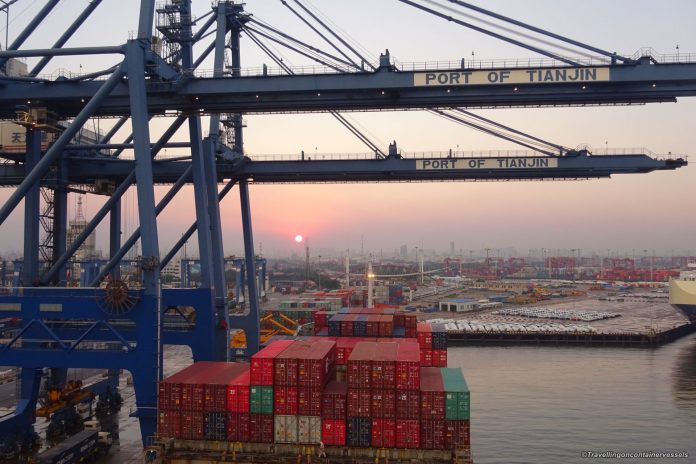Major liner operators are imposing congestion surcharges for reefers bound for Tianjin port, as Chinese authorities step up Covid-19 checks on frozen food imports, causing delays to discharge cargoes.
The Covid-19 virus has been detected on imported food items from countries such as Ecuador and Brazil and has led the Chinese government to scrutinise cargo to prevent dockers from infection. As reefers are held up for inspection in Tianjin, all reefer plugs are fully utilised, preventing the arrival of more reefers.
French carrier CMA CGM will impose a US$1,250 surcharge for every reefer export from the east coast of South America, beginning 18 December.
In a customer advisory, the carrier said, “For ongoing units and those which have already been re-routed, a specific surcharge will be calculated at the time of the reloading as soon as space is made available at the ports of Tianjin/Xingang.”
Ocean Network Express (ONE) began implementing a US$1,300 surcharge on 24 November, saying this is needed to cover additional costs related to the unexpected plug-in charges and monitoring fees.
Some, like COSCO Shipping Lines, are also requesting that customers divert the cargoes if possible, “Under this critical and urgent situation, we are forced to discharge your reefer containers in an alternative port, change your transit route without notice or hold your reefer container in a transit port, so as to minimise the loss caused,” said the line.
ONE also suggests that it, “Shall endeavour to arrange onward transportation from the alternative discharge port to the originally intended destination subject to reefer plug availability. In an effort not to compound operational constraints and to maintain the safest operation possible under these circumstances, ONE will encourage customers to consider a change of destination to alternative ports, especially for time-sensitive cargoes.”
German liner operator Hapag-Lloyd is giving customers the option of accepting delivery at the current port of discharge, diverting containers to another port and returning reefer containers back to the port of origin.
For all options, all additional costs, risks and liabilities related to the storage or movement of the cargoes after discharge will be for the account of the cargo owner.
Martina Li
Asia Correspondent







